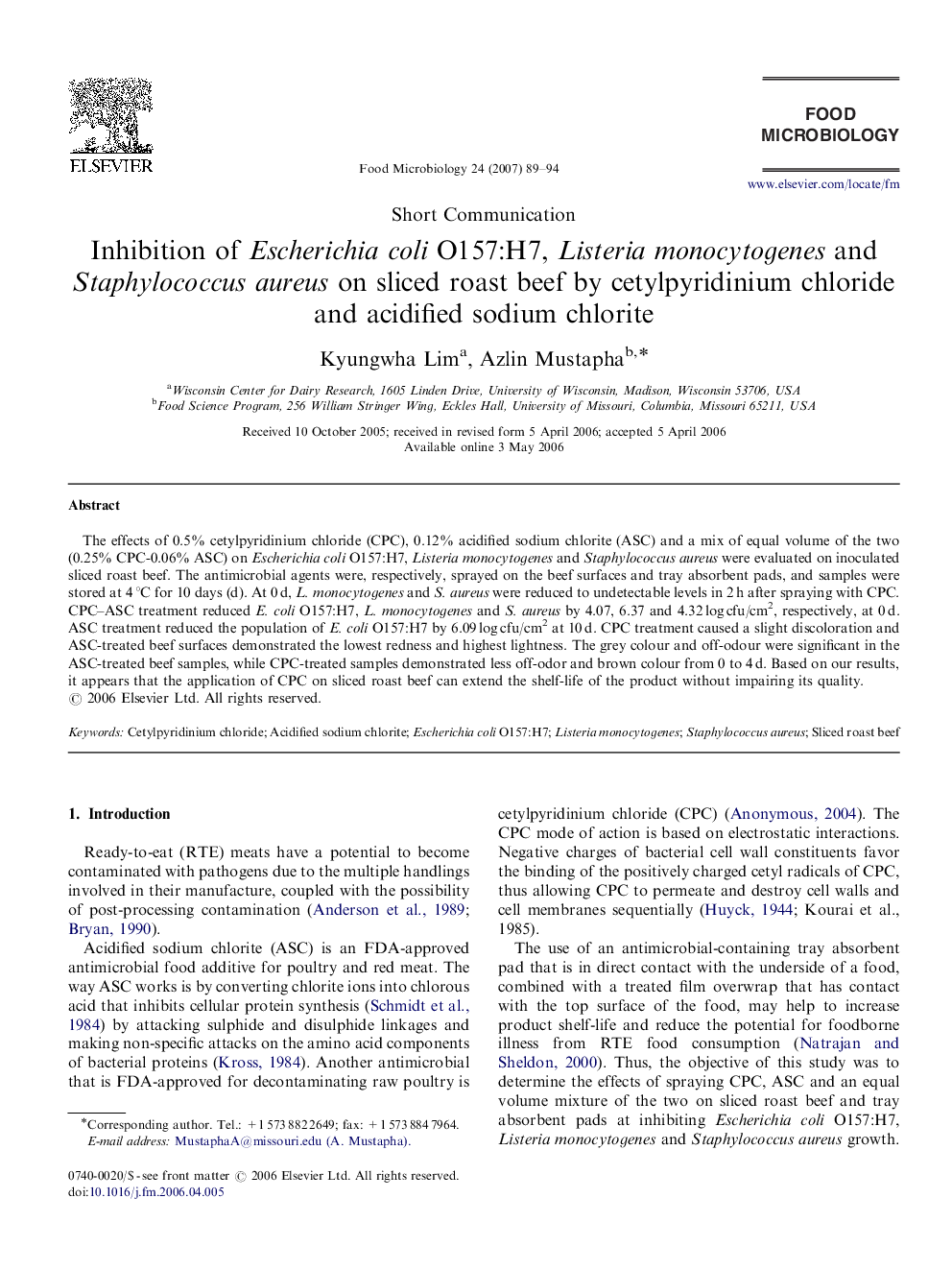| Article ID | Journal | Published Year | Pages | File Type |
|---|---|---|---|---|
| 4363917 | Food Microbiology | 2007 | 6 Pages |
The effects of 0.5% cetylpyridinium chloride (CPC), 0.12% acidified sodium chlorite (ASC) and a mix of equal volume of the two (0.25% CPC-0.06% ASC) on Escherichia coli O157:H7, Listeria monocytogenes and Staphylococcus aureus were evaluated on inoculated sliced roast beef. The antimicrobial agents were, respectively, sprayed on the beef surfaces and tray absorbent pads, and samples were stored at 4 °C for 10 days (d). At 0 d, L. monocytogenes and S. aureus were reduced to undetectable levels in 2 h after spraying with CPC. CPC–ASC treatment reduced E. coli O157:H7, L. monocytogenes and S. aureus by 4.07, 6.37 and 4.32 log cfu/cm2, respectively, at 0 d. ASC treatment reduced the population of E. coli O157:H7 by 6.09 log cfu/cm2 at 10 d. CPC treatment caused a slight discoloration and ASC-treated beef surfaces demonstrated the lowest redness and highest lightness. The grey colour and off-odour were significant in the ASC-treated beef samples, while CPC-treated samples demonstrated less off-odor and brown colour from 0 to 4 d. Based on our results, it appears that the application of CPC on sliced roast beef can extend the shelf-life of the product without impairing its quality.
